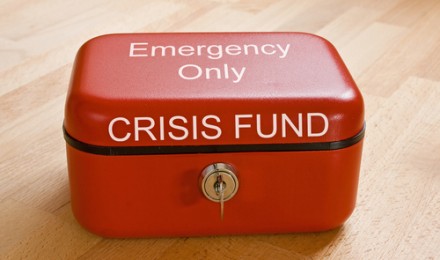Many people looking for a safe place for their money choose to buy certificates of deposit from FDIC-insured banks. Similar to a savings or money market account, CD’s (certificates of deposit) are FDIC insured. They are most often purchased through the bank, and do not require any special analysis. They are an agreement between the individual and the bank to allow the bank to hold the money for a certain amount of time. In exchange for making the money inaccessible for the agreed upon term, the bank will provide an interest rate that is a little better than the current savings rate. The longer the term, the higher the interest rate will be.
CD rates vary with the market and by length. When interest rates are high, CD rates will be high. In times when the Fed is keeping the rates low, one can expect that the rates on their CD’s will not be very high. As soon as a person buys the CD, the rate will stay the same for the duration of the agreed upon term. So getting locked into a long term CD when rates are suppressed may not be in the individual’s best interest. Click here to find CD rates in your area.
Because CD’s only offer rates that are slightly higher than those of a regular savings or money market account, they are considered to be a conservative investment. Higher rates require the investor to lock their money up for more time. While the money can be withdrawn early; each bank has different rules as to what the penalty is for early withdrawal. Many require that the depositor forfeit the last two years worth of interest made on the CD. Any individual that is looking for a safe place to put money, should carefully consider the pros and cons of investing in CD’s.
CD’s are a great place to store money, for the right person. They will get a better return than a savings account, and if the money is not needed, and will not be needed, then a person could do well by using them. But they are not for everyone, and they should definitely not be used as an emergency fund due to the penalty for early withdrawal. For those approaching retirement they can be used properly to provide a safe place that earns interest.
Many people looking for a safe place for their money choose to buy certificates of deposit from FDIC-insured banks. Similar to a savings or money market account, CD’s (certificates of deposit) are FDIC insured. They are most often purchased through the bank, and do not require any special analysis. They are an agreement between the individual and the bank to allow the bank to hold the money for a certain amount of time. In exchange for making the money inaccessible for the agreed upon term, the bank will provide an interest rate that is a little better than the current savings rate. The longer the term, the higher the interest rate will be.
CD rates vary with the market and by length. When interest rates are high, CD rates will be high. In times when the Fed is keeping the rates low, one can expect that the rates on their CD’s will not be very high. As soon as a person buys the CD, the rate will stay the same for the duration of the agreed upon term. So getting locked into a long term CD when rates are suppressed may not be in the individual’s best interest. Click here to find CD rates in your area.
Because CD’s only offer rates that are slightly higher than those of a regular savings or money market account, they are considered to be a conservative investment. Higher rates require the investor to lock their money up for more time. While the money can be withdrawn early; each bank has different rules as to what the penalty is for early withdrawal. Many require that the depositor forfeit the last two years worth of interest made on the CD. Any individual that is looking for a safe place to put money, should carefully consider the pros and cons of investing in CD’s.
CD’s are a great place to store money, for the right person. They will get a better return than a savings account, and if the money is not needed, and will not be needed, then a person could do well by using them. But they are not for everyone, and they should definitely not be used as an emergency fund due to the penalty for early withdrawal. For those approaching retirement they can be used properly to provide a safe place that earns interest.







